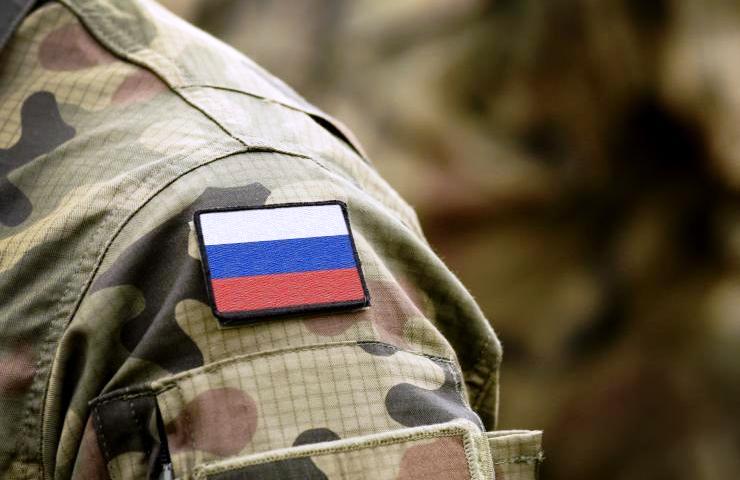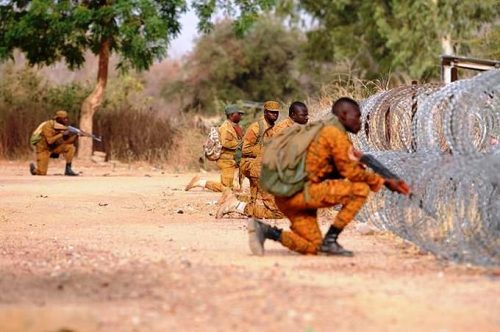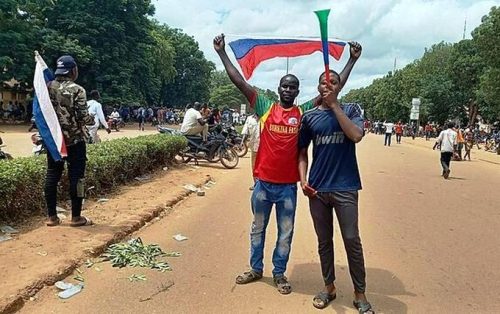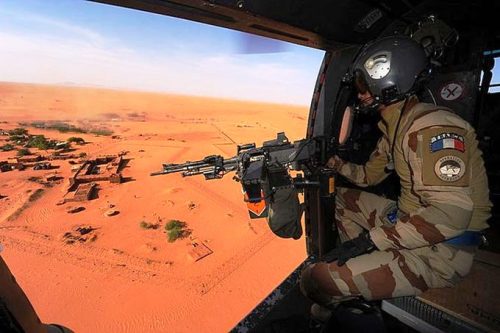A new partner.

Each of these three ‘rebel states’ has forged more or less strong ties with Russia, the global player that has been most active and unscrupulous in Africa in recent years.
This growth in influence has been primarily at the expense of France, the colonial power. In some ways, ties with Paris remain strong. Suffice it to say that French is the official language of Burkina Faso and Niger, as well as one of the most widely spoken languages in Mali. But France has long since become a favourite target of anti-colonialist propaganda that is on the rise in many West African states. This propaganda is probably also fuelled by Russia, which has every interest in ousting a competitor from these areas and asserting its own role.
In reality, Russia’s is a comeback. Moscow had in fact supported in several ways the revolutionary experience of Thomas Sankara, the military and political leader who in 1984 transformed the former French Upper Volta into Burkina Faso (‘Country of Upright Men’).

Burkina Faso Soldiers conduct security measures during training on small unit tactics, at Camp Zagre. Photo: US/ Brittany Slessman.
After the failed coup attempt in September 2023, thousands of Russian military and paramilitary personnel arrived in Burkina Faso to carry out various tasks, including training special corps members and contributing to the security of the head of state.
It is difficult at the moment to say how long Russia’s support will last, given the ongoing conflict in Ukraine and its at least partial political and economic isolation. Moreover, in other contexts, such as the Central African Republic, Moscow’s support has proved invaluable to the local government in the fight against rebel groups, but not decisive, and accompanied by drawbacks such as the demand to be able to extract the country’s mineral resources without control. Similar logic could be repeated in Burkina Faso. But until one or more external partners (African or otherwise) intervene with concrete support in terms of troops and weapons in the fight against the jihadists, Moscow will have an easy time presenting itself as the solution to Burkina Faso’s security problems. It has to be said that there is no lack of suspicion towards the Russians on the part of Burkinabé officials, who do not look favourably on the fact that Moscow’s men have penetrated the top echelons of the state and local security apparatus.
Old friends
Relations between Paris and Ouagadougou have soured since September 2022, after the current junta’s rise to power. Shortly after the coup, it terminated the military agreement between the two countries that had been signed in 1961 and removed the French troops that were present on its territory. To come to some recent events, on 16 April 2024, the Burkinabé government announced that it had expelled three French diplomatic officials, accused of subversive activities. On 1 December 2023, four other French officials were arrested in Ouagadougou and put in prison. They are currently still in Burkina Faso in a guarded residence.

Two men from Burkina Faso show their support to Russia for the reopening of the Russian embassy in Ouagadougou in 2023. Chérif Konaté / VOA
In reality, this situation is mainly the consequence of several factors on the French side as well. For years, France has been struggling to obtain the resources (in economic terms first of all, and then in terms of human resources and armaments) necessary to ensure its presence in West Africa in the same way as in the past or, at any rate, to such an extent as to guarantee a certain political influence.
In other words, France was already weakened before the arrival of the Russians and the rise to power of military juntas in these states. And this weakness was the result of a crisis at the level of the French political leadership, which seems to have basically not yet decided
what role to play in these contexts. Then other actors intervened to
take advantage of this situation.

Niger. Aerial photo of Fort Madama. France was already weakened before the arrival of the Russians. CC BY-SA 3.0/Thomas GOISQUE
In this context, no actor (individual country or organisation) has yet emerged at the regional level that is able to make a significant impact on the security situation, for instance by acting as a deterrent to groups interested in seizing power by force. Nor is there anyone capable of forcing the hand of the military juntas and pushing them to organise a transition to democracy. Interests between countries differ politically, and within civil societies, there are sectors that are opposed to armed intervention or sensitive to the anti-colonial propaganda of the military juntas. This makes both the action of individual governments and that of organisations such as ECOWAS problematic. Governments which, of course, fear the contagion effect, and thus that someone in their armed forces will follow the example of Traoré and Goita and drive them out. But they do not have the tools to counter the three rebels. So, in the case of Burkina Faso, there is currently no one on the horizon who could from the outside put effective limits on the junta’s action. (Open Photo: Flag of Russia on military uniform. Shutterstock/ Bumble Dee)
A.C.



